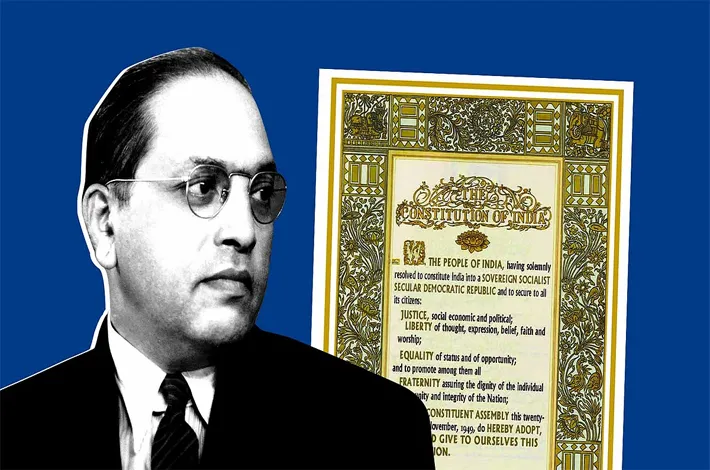Spark Reverse Brain Drain
22-09-2025 12:00:00 AM

Rally to Reclaim Telugu Tech Talent post US Visa Squeeze
VJM DIVAKAR I hyderabad / amaravati
In a seismic shift for global tech migration, U.S. President Donald Trump's Saturday bombshell—a whopping $100,000 annual fee for new H-1B visa applications, skyrocketing costs by over 20,000% for many employers—has ignited a potential homecoming for India's skilled workforce. While existing visa holders breathe easy, the policy's immediate clampdown on fresh petitions could stall the flow of talent into Silicon Valley, hitting the 500,000-strong Telugu diaspora hardest. These high-caliber professionals, powering America's innovation engine with average salaries topping $120,000, now face a stark choice: endure the financial hit or heed the call back to their roots.
For Andhra Pradesh (AP) and Telangana—the Telugu states in a fierce yet fraternal economic duel—this isn't a crisis; it's a clarion call for a "Reverse Brain Drain Revolution." With Hyderabad's HITEC City as a thriving IT nerve center and Visakhapatnam rising as AP's tech challenger, the duo could harness this jolt to supercharge growth. But the real game-changer? The trinity of young, visionary IT leaders: AP's Nara Lokesh, Telangana's Sridhar Babu, and the battle-tested K.T. Rama Rao (KTR), former Telangana IT Minister. Rising above partisan lines and regional rivalries, this powerhouse trio—armed with global networks, deep sector savvy, and unyielding drive—must forge a unified front to lure back the diaspora, transforming remittances into revolutionary investments.
Lokesh, Sridhar, and KTR aren't just ministers; they're the architects of Andhra-Telangana's tech renaissance. Their combined clout—KTR's globe-trotting IT captaincy, Lokesh's startup ecosystem wizardry, and Sridhar's policy precision—could blueprint a Silicon Riviera that rivals the Valley itself. Experts urge the trio to convene on a war footing, pooling contacts from Google boardrooms to Washington lobbies, and pulling strings at the Centre for fast-track approvals.
The goal: Craft bespoke SEZs in Hyderabad and Visakhapatnam, stocked with U.S.-style perks—from gigabit connectivity to fusion cuisine hubs—so returnees feel instantly at home. Boldly, they should aim bigger: A Master Initiative so magnetic it draws even U.S. citizens southward, flipping the brain drain into a global talent torrent.
Spearheading this charge, the trio could launch the Telugu Tech Return Initiative (TTRI)—a joint AP-Telangana powerhouse pooling budgets and brains for a seamless ecosystem. Kickstarting with a blockbuster virtual summit next month, targeting 10,000 diaspora via LinkedIn and X, it would co-brand the states as "India's Silicon Riviera: Where Unity Fuels Innovation." Here's how Lokesh, Sridhar, and KTR could divvy up the playbook, each leveraging their strengths for maximum impact:
Measure 1: Zero-Tax Tech Havens – Lokesh Leads the Charge on Fiscal Fireworks Nara Lokesh, with his flair for entrepreneurial ecosystems, should champion Zero-Tax Tech Havens:
Declare SEZs in Amaravati (AP) and Hyderabad's fringes (Telangana) offering a five-year income tax holiday for H-1B returnees. Amp it up with "remittance rebates"—refunding 50% of repatriated U.S. earnings as startup seed. This fiscal alchemy could channel $6 billion into local VCs from just 10% of returnees. Lokesh could sync it to AP's Polavaram mega-project, dangling priority land for green tech ventures, while Sridhar Babu fast-tracks GST waivers on R&D imports, tapping Telangana's pharma goldmine. KTR, the network ninja, would rally global captains to endorse and invest, ensuring the zones boast Valley-caliber co-working pods and venture pods.
Measure 2: NRI Innovation Accelerators – Sridhar Babu Builds the Launchpads
Telangana's IT ace Sridhar Babu takes the helm on NRI Innovation Accelerators: Roll out state-funded "Returnee Labs" brimming with AI rigs, 3D printers, and quantum access—free for two years. Envision biotech bays in Genome Valley for Boston returnees or drone arenas in Visakhapatnam for California aviators. Sweeten with "Equity-for-Expertise" grants: $500,000 seeds for 5% equity in firms hiring locals. Drawing from KTR's playbook of birthing unicorns like Swiggy, Sridhar could pledge matching IT export funds, targeting 1,000 startups by 2027. Lokesh chips in with AP's maker spaces, while KTR's diaspora Rolodex secures mentorship from Microsoft alums, turning ideas into empires overnight.
Measure 3: Homecoming Harmony Packages – KTR Crafts the Cultural Glue
KTR, the seasoned statesman with a soft spot for family and heritage, spearheads Homecoming Harmony Packages to ease the 70% of H-1B Telugus with spouses and kids. Introduce "Family Fusion Visas" for instant residency, paired with subsidized international schooling. AP under Lokesh could unveil "Smart Village Relos"—rural hubs wired for remote work, blending desi calm with U.S. hustle. Telangana, via Sridhar, counters with "Hyderabad Heritage Homes": NRI-subsidized luxury pads in restored zones at 30% off-market rates. KTR seals the deal with "Diaspora Diwali" extravaganzas—venture pitches amid cultural feasts—plus free Telugu immersion for U.S.-raised tykes, making relocation a heartfelt homecoming, not a hassle.
Measure 4: Brain Gain Blockchain – The Trio's Tech-Tracked Triumph
Uniting all three, a Brain Gain Blockchain platform: A tamper-proof ledger matching returnee skills to state gigs—from Guntur cybersecurity to Warangal EV batteries. Partner with NASSCOM for "Guaranteed Gig Pathways"—six-month paid apprenticeships flipping to jobs. Track wins via a TTRI app with gamified perks, eyeing 50,000 returnees by 2030.
Turn on Page 4








